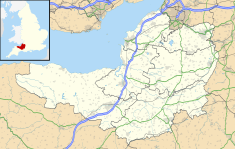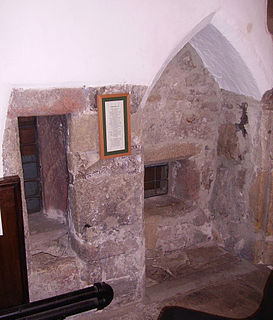
In Christianity, an anchorite or anchoret is someone who, for religious reasons, withdraws from secular society so as to be able to lead an intensely prayer-oriented, ascetic, or Eucharist-focused life. Whilst anchorites are frequently considered to be a type of religious hermit, unlike hermits they were required to take a vow of stability of place, opting for permanent enclosure in cells often attached to churches. Also unlike hermits, anchorites were subject to a religious rite of consecration that closely resembled the funeral rite, following which they would be considered dead to the world, a type of living saint. Anchorites had a certain autonomy, as they did not answer to any ecclesiastical authority other than the bishop.
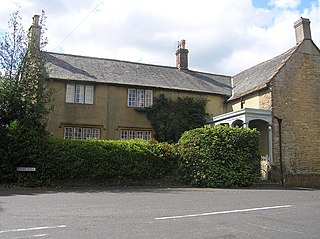
Haselbury Plucknett is a village and civil parish on the River Parrett in Somerset, England, situated 6 miles (9.7 km) south west of Yeovil in the South Somerset district. The village has a population of 744.
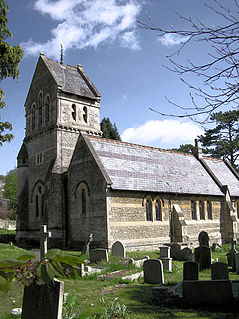
St Michael's Church is the Church of England parish church of Monkton Combe, Somerset, England. It was also the parish church of Combe Down until the 1850s when the communities separated. It is a Grade II listed building.

Wulfric of Haselbury was an anchorite and miracle worker in Wiltshire and Somerset, England, frequently visited by King Stephen. His feast day is 20 February.

Robert of Knaresborough was a British hermit who lived in a cave by the River Nidd, Knaresborough, North Yorkshire. His feast day is on the 24th of September.

The Church of St Michael in Othery, Somerset, England dates back to the 12th century. It has been designated by English Heritage as a Grade I listed building. It is on the Heritage at Risk Register due to the state of the high level stonework on the tower.

The Church of St Mary in Meare, Somerset, England, was formerly in the keeping of Glastonbury Abbey, and dates from 1323. It was built for Abbot Adam of Sodbury, and is a Grade I listed building.

The Anglican Church of St Andrew, Northover, in Ilchester, Somerset, England, dates from the 14th and 15th centuries. Today it is part of the parish of Ilchester with Northover, one of the three parishes which constitute the Ilchester District Churches. It is recorded in the National Heritage List for England as a designated Grade II* listed building, and is a redundant church in the care of the Churches Conservation Trust. It was vested in the Trust on 1 July 1986.

The Anglican Church of St Michael and All Angels at Butcombe in the English county of Somerset was built in the 15th century and restored in 1868. It is a Grade II* listed building.

The Anglican Church of St Michael and All Angels at Rowberrow within the English county of Somerset dates from the 14th century, but parts were rebuilt in 1865. It is a Grade II* listed building.

The Anglican Church of St Michael and All Angels in Bawdrip, Somerset, England was built in the late 13th or early 14th century. It is a Grade II* listed building.

The Anglican Church of St Michael in Orchard Portman, Somerset, England, dates from the Norman period. It is a Grade II* listed building.

The Anglican Church of St Michael in Angersleigh, Somerset, England was built in the 14th century. It is a Grade II* listed building.

The Anglican Church of St Mary in Kilve, Somerset, England was built in the 14th century. It is a Grade II* listed building.

The Anglican Church of St Michael in Dinder, Somerset, England has Norman origins and was built in the 14th century before being rebuilt in the 15th. It is a Grade II* listed building.

The Anglican Church of St Michael in Seavington St Michael, Somerset, England was built in the 12th century. It is a Grade II* listed building.

The Anglican Church of St Michael and All Angels in Chaffcombe, Somerset, England was built in the 15th century. It is a Grade II* listed building.

The Anglican Church of St Michael in Wayford, Somerset, England was built in the 13th century. It is a Grade II* listed building.

The Anglican Church of St Michael and All Angels in Penselwood, Somerset, England was built in the 15th century. It is a Grade II* listed building.
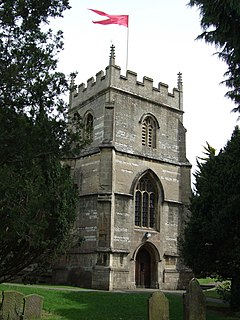
The Church of St Michael and All Angels on How Hill in Twerton, Bath, Somerset, England was built in the 15th century. It is a Grade II* listed building.

